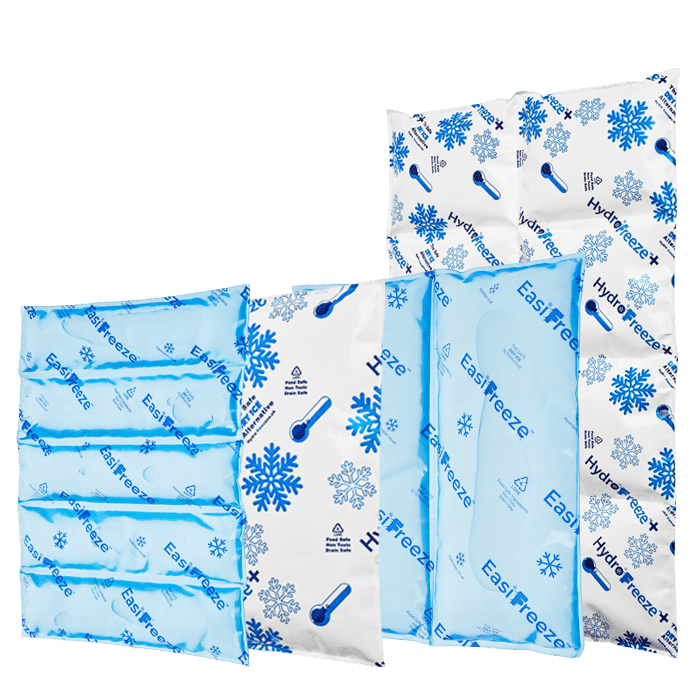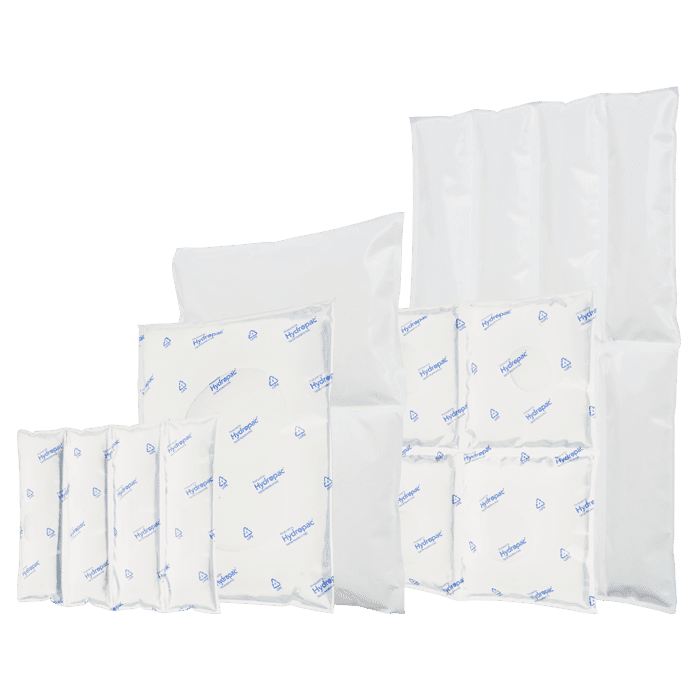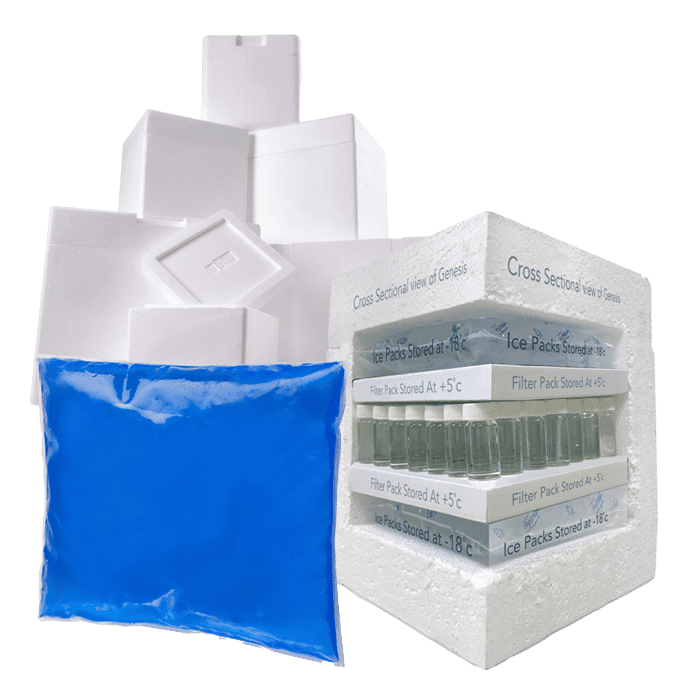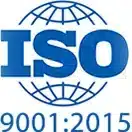What are Phase Change Materials?
We talk about “Phase Change Materials” or PCM on our website and products a lot, but what actually are they?
Phase change materials can store and release large amounts of thermal energy through absorption; in this way, they give excellent thermal performance for both heating and cooling. At Hydropac, we use them primarily for cooling purposes in products such as our Hydro-Freeze Ice Packs and our Gel Ice Packs, to ensure products that require temperature controlled packaging conditions are kept at the right temperature for a minimum of 24 hours.
The PCM we use have been certified food safe and are unique to our product range; in the case of our Gel Ice Packs, the PCM are mixed with highly purified water that has been through 6 stage filtration, UV sterilisation, softening and a chlorination process.
Custom chilled solutions for you
Hydropac offers every customer a customized solution for chilled and conditioned shipping. For example, we help a customer with limited freezing capacity to deliver gel packs frozen and ready to use, and we can manufacture almost all shapes and sizes of cooling elements. As a customer, you come first: we are here to help you.
How Do They Work?
PCM’s absorb thermal energy and release it during the processes of melting and freezing. In other words, if a PCM melts, it absorbs thermal energy from the environment in large quantities, which it then releases when it is frozen. They also recharge as the temperatures around them fluctuate.
Water is the most commonly used PCM but has a freezing point of 0°C, so it is essential to use additional materials with it to maintain temperatures lower than this.
Why We Use Them?
We use PCMs in our products simply because otherwise there would be no control for the temperature inside our packaging materials. With products such as food, vaccines and some medications requiring temperature-controlled conditions in transit, this would simply not work, so PCMs give us the ability to regulate the temps inside our packaging materials to ensure the lifespan of the products are not compromised.
We have developed our own unique PCM in our lab, and produce our Ice Packs onsite at our factory in Buckinghamshire, so we know at all points exactly what is going into our products.
PCM Facts
- PCMs absorb and store 5-14 x more heat per unit volume than rock or masonry
- PCMs are used in everyday items such as freezers, HVAC systems, textiles and electronics
- Using PCMs leads to less energy usage in the product it is used in
- Water based PCMs are the best for cooling as they are environmentally friendly, effective and non-toxic.
- There are a range of PCMs used for heating purposes, including salt hydrates, paraffins and biobased organic compounds.
Sustainability Hydropac and CSR
Sustainability isn’t just a trend for us – it’s a promise. As we innovate, create, and lead, we keep our planet’s well-being at the forefront. With Hydropac, you’re not just preserving the quality of your cargo; you’re contributing to a healthier world.
Experience the power of sustainable temperature assurance with Hydropac – where excellence and environmental responsibility coexist for a brighter future.








